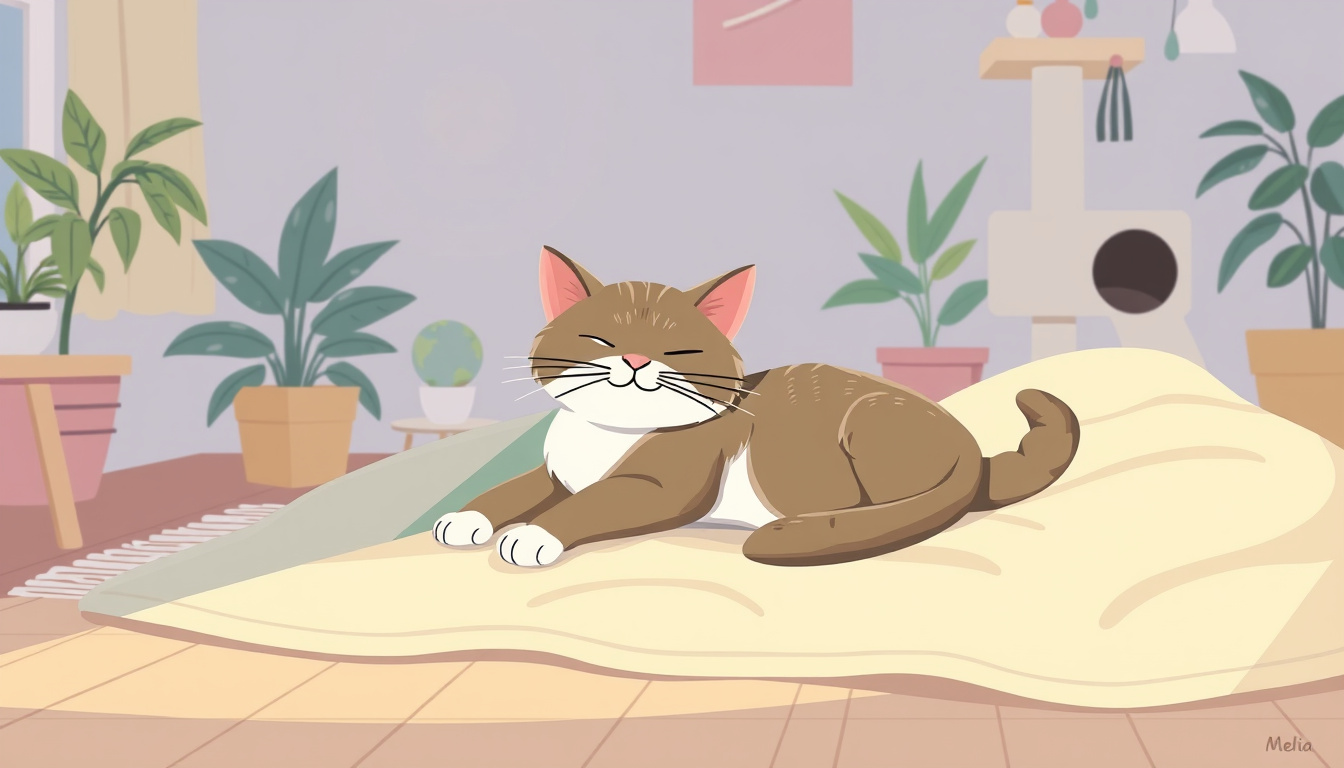Feline anxiety is a common yet often misunderstood issue that affects countless cats and their owners. Many pet parents are surprised to discover that their furry friends can experience anxiety just like humans do. Understanding the causes and symptoms of feline anxiety is the first step toward helping your cat lead a more tranquil life. In this article, we will explore the top 10 effective solutions for feline anxiety, from creating a safe space to employing behavioral training techniques and even considering natural remedies. Whether you're noticing signs of stress in your cat or simply want to be proactive in keeping them happy, these feline anxiety solutions can transform your cat's life today.
Make your car happy and prevent spraying now!
Key Takeaways
- Feline anxiety can stem from various causes that affect a cat's behavior and health.
- Creating a safe environment is crucial for reducing stress in anxious cats.
- Behavioral training techniques can effectively help alleviate symptoms of feline anxiety.
- Natural remedies like herbs and supplements offer alternative solutions for managing anxiety.
- Consulting a veterinarian is essential for severe cases that may require medical intervention.
Understanding Feline Anxiety: Causes and Symptoms
Feline anxiety is a common yet often misunderstood condition affecting many cats, causing them distress and impacting their overall well-being. Understanding the causes of feline anxiety is crucial for pet owners to identify whether their feline friends are suffering. Common triggers include changes in the home environment, such as moving to a new house, introducing new pets or family members, and even shifts in daily routines. Symptoms can vary widely and may present as excessive grooming, hiding, aggression, or changes in eating habits. Recognizing these signs early can lead to effective feline anxiety solutions that promote a calmer, happier cat. Whether it involves creating a safe space, utilizing calming pheromones, or seeking veterinary advice for behavior modification, addressing feline anxiety is essential to ensure your cat's mental and emotional health.
Creating a Safe and Comfortable Environment
Creating a safe and comfortable environment is crucial for alleviating feline anxiety, and there are several effective solutions that pet owners can implement. Cats are sensitive creatures that thrive in a stable and secure setting, so ensuring their surroundings are calm can significantly reduce stress levels. Start by providing cozy spots where your cat can retreat to, such as soft beds or cat trees that offer vertical space. This helps them feel safe and in control of their environment. Additionally, using pheromone diffusers or calming sprays designed specifically for felines can create a soothing atmosphere that alleviates anxiety. Incorporating interactive toys and engaging play sessions into your cat’s daily routine can also be beneficial, as they channel nervous energy into positive activities. By integrating these feline anxiety solutions, you can help your beloved pet feel more at ease and create a harmonious home where they can thrive.
'In the middle of difficulty lies opportunity.' - Albert Einstein
Behavioral Training Techniques to Alleviate Anxiety
Feline anxiety solutions often require a multifaceted approach, particularly when it comes to behavioral training techniques. One effective method is desensitization, which involves gradually exposing your cat to the specific triggers that cause anxiety, such as loud noises or unfamiliar environments. This process helps your cat learn to associate these stimuli with positive experiences. Another important technique is counter-conditioning, where you modify your cat's emotional response by pairing the anxiety-inducing trigger with something they love, like treats or playtime. Additionally, providing a safe space—equipped with cozy bedding and engaging toys—can help your feline feel secure during stressful situations. By implementing these behavioral training techniques, cat owners can establish a supportive environment that ultimately alleviates feline anxiety, fostering a happier and more relaxed pet.
Make your car happy and prevent spraying now!
Natural Remedies: Herbs and Supplements
When it comes to addressing feline anxiety, many pet owners are on the lookout for natural remedies that can provide relief without the side effects of pharmaceuticals. One effective approach is to explore a variety of herbs and supplements that are known to soothe anxious cats. Valerian root is a popular choice among pet owners, as it has calming effects and can encourage relaxation in felines. Chamomile is another herb that not only aids in calming but also helps with digestive issues often linked to anxiety in cats. Additionally, supplements containing L-theanine, an amino acid praised for its calming properties, can be beneficial for reducing stress levels in your kitty. CBD oil is also gaining attention as a natural solution for feline anxiety, with many pet owners reporting positive results. Incorporating these natural remedies into your cat's routine could provide a gentle yet effective approach to managing their anxiety, making them more comfortable in their environment.
Interactive Toys and Activities to Engage Your Cat
Interactive toys and activities are essential feline anxiety solutions that help to stimulate your cat's mind and alleviate stress. Cats are naturally curious creatures, and engaging them with toys that promote play can lead to a happier, more relaxed pet. Consider investing in puzzle feeders that not only make mealtime more exciting but also require your cat to work for their food, keeping their brain active. Another great option is interactive laser toys that encourage your cat to chase and pounce, thereby mimicking their instinctual hunting behavior, which can be a fantastic way to reduce anxiety. Additionally, don’t underestimate the power of regular playtime with simple toys like feather wands or crinkly balls; these activities allow for bonding and can help to dispel nervous energy. By providing your feline friend with stimulating toys and activities, you can significantly improve their emotional well-being and create a stress-free environment, thus effectively implementing effective feline anxiety solutions.
Frequently Asked Questions
What are the common causes of feline anxiety?
Common causes of feline anxiety include changes in the environment, lack of stimulation, traumatic experiences, and social stressors such as conflicts with other pets.
How can I tell if my cat is anxious?
Symptoms of feline anxiety can include excessive vocalization, hiding, destructive behavior, changes in appetite, and inappropriate elimination.
What are some effective behavioral training techniques for alleviating feline anxiety?
Effective techniques include positive reinforcement, creating a predictable routine, and gradual desensitization to anxiety-inducing stimuli.
Are there natural remedies that can help my anxious cat?
Yes, natural remedies such as valerian root, chamomile, and L-theanine can help calm anxious cats. Always consult your vet before introducing new supplements.
When should I consider consulting a veterinarian for my cat's anxiety?
Consult a veterinarian if your cat's anxiety is severe, persistent, or results in harmful behaviors. A vet can recommend medical interventions to help manage anxiety.
About
How to stop a cat from spraying offers useful tips and advice on how to stop the undesired and nasty behavior with a fun, proven and effective method that will make your cat love you even more.
Comments
Post a Comment